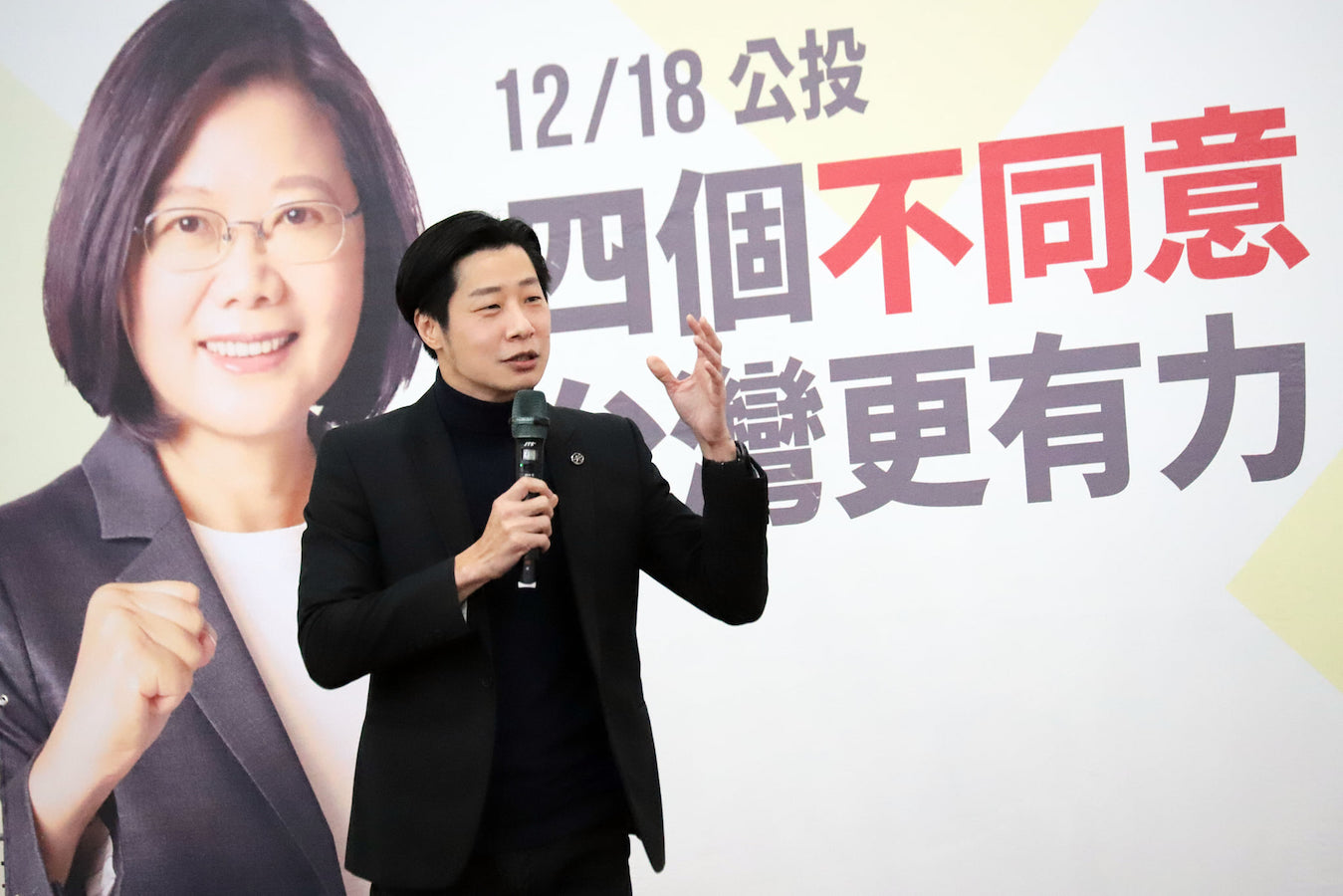by Brian Hioe
語言:
English
Photo Credit: Freddy Lim/Facebook
INDEPENDENT LEGISLATOR Freddy Lim will face a recall vote in January, following the recall petition against him clearing the necessary benchmarks. The date of the recall has been set for January 9th. Lim represents the Zhongzheng and Wanhua districts of Taipei.
For the recall to be held, opponents of Lim required 10% of the eligible voter electorate for Lim’s constituency, or 24,475 signatures, to sign the petition approving of the recall. Organizers of the recall campaign against Lim turned in 38,286 signatures, of which 27,362 signatures were confirmed as valid.
The recall campaign originally encountered difficulties clearing the 10% benchmark. Although recall campaign proponents turned in 31,158 signatures in October, 9,431 signatures were found to be invalid. These were signatures of deceased individuals, provided incomplete information, or repeat signatures. As such, the total number of signatures that were found to be valid was 21,727, short of the 24,475 signature benchmark. Recall organizers were given ten days in which to resubmit their information.
 Freddy Lim. Photo credit: Freddy Lim/Facebook
Freddy Lim. Photo credit: Freddy Lim/Facebook
Evidently, this was successful, as seen in that the recall vote has been confirmed. Nevertheless, recall organizers were criticized by pan-Green politicians for potentially engaging in fraud, given that close to 1/3rd of the signatures they turned in were invalid.
The main force driving the recall campaign against Lim consists of local pan-Blue politicians, particularly Taipei city councilor Chung Siao-ping, who also represents the Zhongzheng and Wanhua districts. Chung is a KMT member but has also been supportive of Taipei mayor Ko Wen-je in the past. Chung sought to run for mayor in 2014 and, in past years, seems to have been gunning for Lim’s legislative seat. That being said, Chung has faced charges of corruption in the past.
The recall campaign against Lim gained steam after an incident that took place during the COVID-19 outbreak that affected Taiwan since May. The outbreak began in “tea parlors” in Wanhua, which Lim represents, and affected markets including the Taipei First Fruit and Vegetable Wholesale Market and Huannan Market. The chair of the Huannan Market attacked Lim during a live press conference, criticizing him as never being in the area and having failed to visit the market during the outbreak. During the same press conference, Lim also criticized Taipei mayor Ko Wen-je for his handling of the COVID-19 situation.
The incident was used to leverage claims that Lim is rarely in Wanhua and is more concerned on national-level issues, rather than local issues facing his constituency. One notes that younger, more progressive politicians such as Lim that entered electoral politics after the Sunflower Movement have been reluctant to engage in Taiwanese traditional practices such as attending the weddings and funerals of strangers, with the view that they would rather focus on winning over voters through their policy stances rather than personalism. Yet this has sometimes worked against them, with the accusation that they are not present in their local areas, or invested in rubbing shoulders with local voters.
The recall vote facing Lim is the latest of a series of recall votes targeting younger progressive politicians. This proves ironic, since activists turned that turned politician after the Sunflower Movement were originally those that championed the lowering of benchmarks needed to hold referendums and for referendums to be binding, with the view that this could be used to remove KMT politicians who have long held office in their local areas but have lengthy records of political corruption.
 Photo credit: Freddy Lim/Facebook
Photo credit: Freddy Lim/Facebook
It has instead been more common for recall votes to be used against young progressives, however. This was most recently seen in the recall of Chen Po-wei of the Taiwan Statebuilding Party in October, with the KMT framing the recall vote against Chen as a referendum on the Tsai administration. Independent Kaohsiung city councilor Huang Jie also faced a recall vote, though the vote did not clear the necessary benchmarks to be binding. Nevertheless, Taoyuan city councilor Wang Hao-yu of the DPP was recalled in January. All of these politicians also faced accusations that they were more focused on national-level issues than working to better the outlook for their local constituencies.
Lim’s recall would be ironic, coming on the heels of Lim being invited to Biden’s Summit for Democracy as the only Taiwanese legislator invited to the summit, which he is to attend with Digital Minister Audrey Tang and Taiwan’s representative to the US, Hsiao Bi-khim. In this, Lim will also be the only parliamentarian from all of Asia that will attend the Summit for Democracy. But it is to be questioned whether Lim’s international profile can benefit his local electoral chances in Wanhua.

